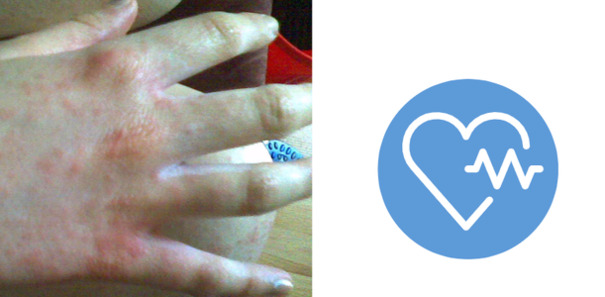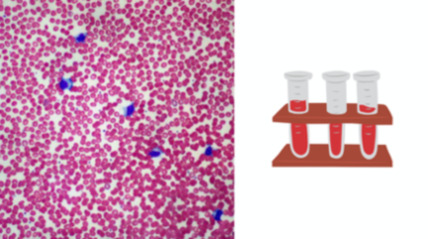Treatment of Infectious Mononucleosis
Hope your health is well. Some of you may face “Infectious Mononucleosis” in your life. Today we are going to discuss about the symptoms, causes, transmission, diagnosis, tests, treatment, prevention and complication of infectious mononucleosis. We will deeply discuss about the treatment of infectious mononucleosis as well as prevention.
[lwptoc]What is Infectious Mononucleosis?
Infectious mononucleosis, also known as the “kissing disease” or “glandular fever” or “mono” is a viral illness caused by the Epstein-Barr virus (EBV). The virus is spread through contact with saliva and mucus; when someone with the virus sneezes, coughs, or even talks, the virus is spread through tiny droplets of saliva.
Mononucleosis is caused by a virus, usually the Epstein–Barr virus (EBV). Click To TweetInfectious mononucleosis is usually a mild illness, but it can be serious for people who are already ill, or have compromised immune systems. Treatment of infectious mononucleosis can solve your problem.

Symptoms of Infectious Mononucleosis
If you’re exhibiting any of these symptoms, then you may have been infected with mononucleosis. If you are experiencing any of the symptoms below, it’s important to see a doctor. Before knowing the treatment of infectious mononucleosis or management of infectious mononucleosis, let’s know the symptoms.
- The first symptom of infectious mononucleosis is fatigue. You may feel tired more often than usual.
- The second symptom is very sore throat. This symptom is very common infectious mononucleosis, and can be very painful.
- Swollen lymph glands
- Fever
- Headache
- Muscle aches
- Skin rash
- Nausea
- Loss of appetite
- Sore eyes
- Swollen tonsils
- Enlarged liver and spleen
- Bone pain
- Swollen testicles
- Palpitations
- Jaundice
- Diarrhea
- Loss of voice
- Weight loss
- Fever blisters.
If you have any of the symptoms above, it’s important to see a doctor, as mononucleosis is a disease that can be treated. Treatment of infectious mononucleosis is necessary here.

Causes & Transmission of Infectious Mononucleosis
Infectious mononucleosis is extremely common. You can get it from kissing, sharing drinks, sharing eating utensils, and, in rare cases, from blood transfusions.
- Mononucleosis is caused by a virus, usually the Epstein–Barr virus (EBV). The virus spreads easily from person to person through contact with bodily fluids.
- Mononucleosis is hard to catch but easy to get rid of. It takes anywhere from 4 to 6 weeks for your symptoms to disappear on their own. Once you have mononucleosis, you’re immune to getting it again.
- If you know you have mononucleosis, don’t kiss anyone, share drinks or utensils, or go to work until you’ve been symptom-free for at least 4 weeks. If you don’t know whether you have mononucleosis, avoid kissing and sharing drinks or utensils until you are sure you don’t have the infection.

Diagnosis of Infectious Mononucleosis
Before treatment of infectious mononucleosis, it is very necessary to diagnosis it. Here we are going to describe diagnosis of infectious mononucleosis.
- Mononucleosis can be diagnosed by a blood test, but only some specialists will run this test on a patient that is suspected to have mononucleosis. A mononucleosis blood test is not a specific test, but it will tell if your body has produced antibodies against Epstein-Barr virus.
- About 85% to 90% of people who have mononucleosis will develop antibodies against Epstein-Barr virus. The test is most useful when a person is first diagnosed with mononucleosis, because it can take up to three months for the body to produce these antibodies. If you have been diagnosed with mononucleosis but have not developed these antibodies, it is unlikely you are suffering from mononucleosis.
- The Epstein-Barr virus blood test is not a diagnostic test. It only tells if you are infected with the Epstein-Barr virus; it cannot tell how severe the infection is.
- Mononucleosis is a viral infection that causes the body to produce an abnormally high number of white blood cells, or lymphocytes. When the infection is active, the body’s immune system creates new lymphocytes to fight the infection. This causes the lymphocytes to build up in the blood, increasing the white blood cell count.
- After diagnosis, treatment of infectious mononucleosis is needed early.

Treatment of Infectious Mononucleosis (EBV Infection)
Treatment of infectious mononucleosis is described here:
- (IM) should be aimed at relieving symptoms and preventing complications of the disease. The most common symptom associated with IM is fatigue and it can take several weeks for the person to recover fully.
- Antibiotics are not necessary for the treatment of infectious mononucleosis, but they may be prescribed to treat secondary infections, such as bacterial pneumonia secondary to atelectasis.
- A doctor may prescribe prednisone for a few days to help relieve the symptoms of IM. Prednisone is a steroid that can help with the inflammation. It should be taken under close medical supervision because of its side effects.
The objectives of the meta-analysis were to assess the efficacy and safety of acyclovir for the treatment of infectious mononucleosis. The decision to include studies, data extraction, and data analysis were conducted in duplicate by two independent researchers. You may follow the above instruction for the treatment of infectious mononucleosis.
Several Complications of Infectious Mononucleosis
There are several complications of IM that require medical attention.
- Thrombocytopenia (low platelet count) is the most common complication of IM. A platelet count below 50,000/mm is considered low. If the platelet count drops below 10,000/mm, it is critical to seek medical attention.
- Thrombocytopenia is usually treated with oral or IV corticosteroids. If the platelet count does not rise within 24–48 hours of treatment, it is usually due to an underlying disease or another disorder.
- Pneumonia is another complication of IM. It can occur at any stage of the disease and is usually caused by an infection with bacteria or a virus. Pneumonia is treated with antibiotics.
- IM is a viral infection of the immune system. The body’s immune system normally fights off viruses and bacteria. In IM, this system malfunctions and attacks the body’s own cells.
IM most commonly occurs in teenagers and young adults. It is usually caused by the Epstein–Barr virus (EBV). This virus infects 95% of adults by the age of 40.
How to Prevent Infectious Mononucleosis
Prevention is always better than cure. If you can prevent it, then the treatment of infectious mononucleosis is not needed. The disease is common in the United States, with over 200,000 cases reported each year. While many of these cases are mild, it can also be serious.
- The way to prevent infectious mononucleosis is to avoid kissing others with it, avoiding sharing beverage containers with infected people, and avoiding sharing food utensils.
- Avoid kissing people with infectious mononucleosis, as it is most commonly spread through saliva. This is the best way to prevent infectious mononucleosis.
- Avoid sharing beverage containers with an infected person. This is because they can leave behind saliva that causes infectious mononucleosis.
- Drink from a separate cup or bottle that you have filled yourself.
